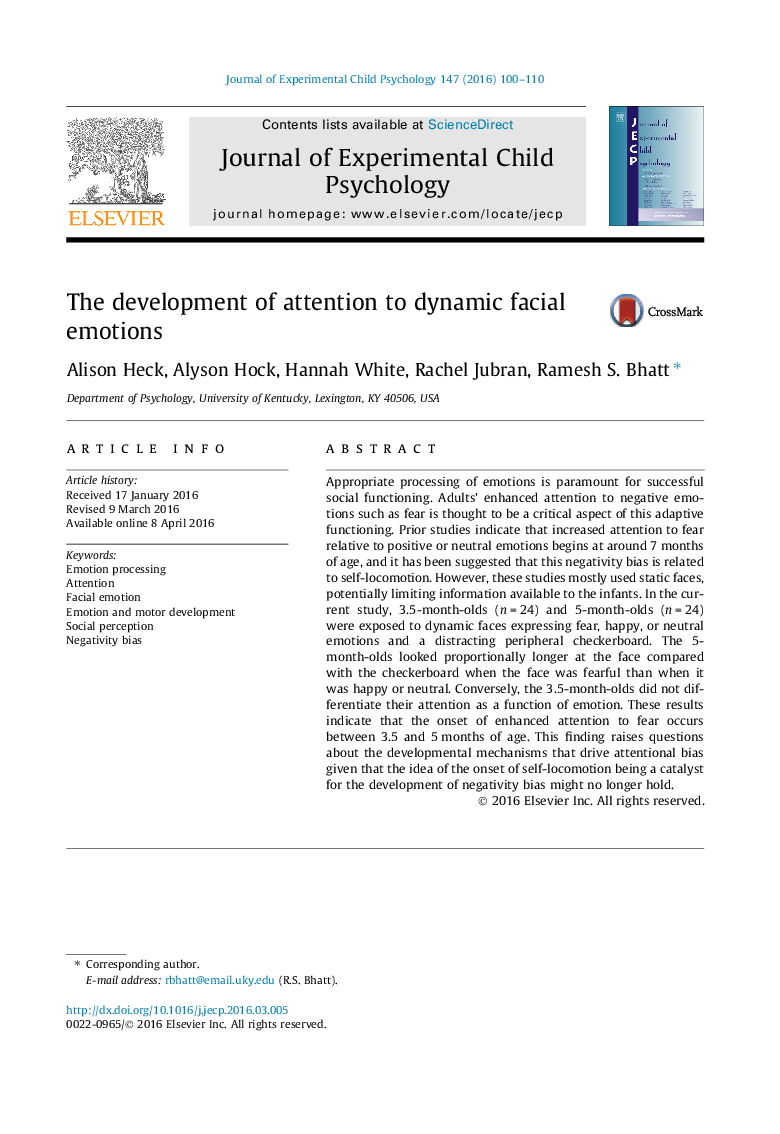| کد مقاله | کد نشریه | سال انتشار | مقاله انگلیسی | نسخه تمام متن |
|---|---|---|---|---|
| 917898 | 1473465 | 2016 | 11 صفحه PDF | دانلود رایگان |
• Enhanced attention to negative emotions like fear has been shown at 7 months.
• The onset around 7 months is thought to be associated with self-locomotion.
• However, prior research mostly used static faces, potentially limiting information.
• We found enhanced attention to fear at 5 but not at 3.5 months in dynamic stimuli.
• This result challenges the association between locomotion and attention to emotions.
Appropriate processing of emotions is paramount for successful social functioning. Adults’ enhanced attention to negative emotions such as fear is thought to be a critical aspect of this adaptive functioning. Prior studies indicate that increased attention to fear relative to positive or neutral emotions begins at around 7 months of age, and it has been suggested that this negativity bias is related to self-locomotion. However, these studies mostly used static faces, potentially limiting information available to the infants. In the current study, 3.5-month-olds (n = 24) and 5-month-olds (n = 24) were exposed to dynamic faces expressing fear, happy, or neutral emotions and a distracting peripheral checkerboard. The 5-month-olds looked proportionally longer at the face compared with the checkerboard when the face was fearful than when it was happy or neutral. Conversely, the 3.5-month-olds did not differentiate their attention as a function of emotion. These results indicate that the onset of enhanced attention to fear occurs between 3.5 and 5 months of age. This finding raises questions about the developmental mechanisms that drive attentional bias given that the idea of the onset of self-locomotion being a catalyst for the development of negativity bias might no longer hold.
Journal: Journal of Experimental Child Psychology - Volume 147, July 2016, Pages 100–110
